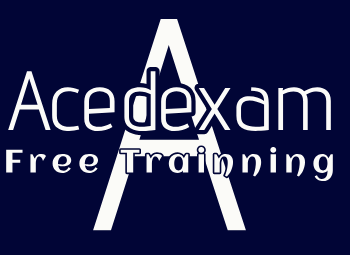Category: Data File Formats
Create an Azure SQL DB – CREATE DATABASE dbName; GO
FIGURE 2.3 The Select SQL Deployment Option blade 2. Select the subscriptions and resource group where you want the database to reside. Enter a database name (I used brainjammer). Under the Server drop‐down box, click the Create New link to create a database server. Enter the server name (I used csharpguitar), and enter a server…
Read MoreApache Parquet File Format – CREATE DATABASE dbName; GO
Apache Parquet files are used in the Hadoop ecosystem. JSON, CSV, and XML are useful when it comes to sharing data between applications, whereas parquet files perform better for temporarily storing intermediate data between different stages in an application. To get an idea of how to work with this file type, consider the following code…
Read MoreA Historical Look at Data – CREATE DATABASE dbName; GO
Humans have been collecting and storing data for thousands of years. The earliest example is a tally stick, which was a bone that people scratched lines into when counting supplies or tracking business activities of some kind. You have probably also heard of an abacus, which was the first dedicated device created for the purpose…
Read MoreAzure Sentinel – Gaining the Azure Data Engineer Associate Certification
For those responsible for implementing a security solution, Azure Sentinel is the place to start, and it’s helpful to become an expert at it. This product is an industry‐leading security information event management (SIEM) and security orchestration automated response (SOAR) solution. In addition to data collections and analysis capabilities, Azure Sentinel has threat intelligence, detection,…
Read MoreAzure Bastion – Gaining the Azure Data Engineer Associate Certification
It is common practice to make a remote desktop connection to a Windows machine using the Remote Desktop Protocol (RDP). The port is 3389. RDP may not be supported in some company scenarios due to security restrictions. Instead, you can use Azure Bastion to connect over port 443 from within the Azure portal. The connection…
Read MoreAzure Purview– Gaining the Azure Data Engineer Associate Certification
Use Azure Purview to help manage and govern your data landscape. You can use this tool with on‐premises, SaaS, Azure, and other cloud service providers. Being able to identify sensitive data and where data has come from, and discovering new data sources are all features of Azure Purview. This tool is focused on your data…
Read MoreScope – Gaining the Azure Data Engineer Associate Certification
The next concept that is important to RBAC is scope. Notice the hierarchical structure illustrated in Figure 1.25. FIGURE 1.25 Role‐based access control scope A management group is the top level, and it can be used to define different departments within a company—for example, IT, Finance, HR, and Accounting. Each of those may be responsible…
Read MoreAzure Cosmos DB– Gaining the Azure Data Engineer Associate Certification
Azure Cosmos DB is a database administration feature. It will automatically administer DBMS updates and patching, storage capacity management, and autoscaling capabilities. From a storage perspective, the scale happens automatically and elastically. Elastically means that when the database needs more storage space, it gets allocated, and when it is no longer needed, it gets deallocated.…
Read MoreOther Products– Gaining the Azure Data Engineer Associate Certification
Here are some additional storage products that may be included on the exam. Even if they do not appear on the exam, it is good practice to know most of the Azure products, what they do, and why you would use them. Azure Data Explorer Azure Data Explorer (ADE) has been referred to often as…
Read MoreAzure SQL Database– Gaining the Azure Data Engineer Associate Certification
This product is on the other side of the cloud service spectrum when compared to SQL Server on Azure VMs. An Azure SQL Database (SQL DB) is a relational DBaaS that offers not only the outsourcing of network and hardware infrastructure, but also operating system and DBMS responsibilities. All you need to worry about is…
Read More
Archives
- August 2024
- July 2024
- June 2024
- May 2024
- April 2024
- March 2024
- February 2024
- January 2024
- December 2023
- November 2023
- October 2023
- September 2023
- July 2023
- May 2023
- April 2023
- March 2023
- February 2023
- January 2023
- December 2022
- November 2022
- October 2022
- September 2022
- May 2022
- April 2022
- February 2022
- January 2022
- December 2021
- October 2021
- September 2021
- August 2021
- June 2021
- May 2021
- April 2021
Contact US


